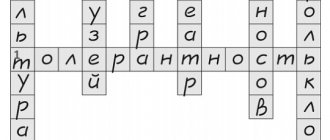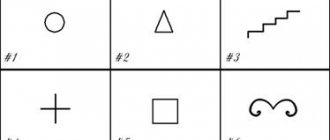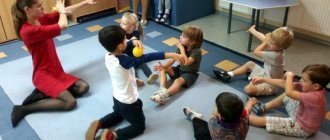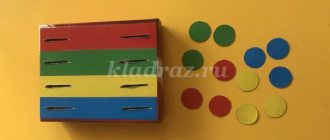Children's psychological trainings: some rules
Of course, you can develop your own laws and rules for each specific group of children, but we recommend that you definitely include the following points:
- confidentiality;
- the right to personal opinion;
- sincere communication;
- listening = respect for the speaker.
We hope that these simple and interesting training exercises will help you realize your educational and training goals and achieve high results in the personal development of your students.
Why do children and adolescents need psychological training?
Training is one of the most popular and effective methods of achieving results, used in practical psychology. It is based on the use of a number of psychocorrective and psychotherapeutic techniques.
Trainings for children and adolescents help develop skills:
- interpersonal and intergroup interaction;
- communication;
- self-regulation.
In addition, special psychological trainings for schoolchildren are often carried out for the purpose of professional self-guidance.
Educational psychologists use various types of training aimed at developing in children certain qualities, abilities, skills, ways of thinking, behavior patterns, and psychological attitudes that correct their psycho-emotional state.
Psychological trainings for teenagers, and especially for children of preschool and primary school age, are, first of all, exciting games and exercises, during which practical training is carried out.
Classes can take place both in a group and individually. The form of training varies depending on the composition and behavior of the training participants, as well as their motivation. This approach allows each child to open up, liberates and teaches collective interaction.
Game trainings bring maximum effectiveness only if the child himself is interested in changing his behavior, worldview and personal growth.
Psychology training for children does not necessarily have to be conducted by qualified psychologists; an educator or teacher can also successfully cope with this task.
Training exercises for preschool children
To prevent children's attention from wandering, games for training preschoolers should be short-lived. It is better to play 3-4 different games in one lesson. Each of them should be aimed at achieving a specific goal.
Training game “Dragon biting its tail”
This game helps children get rid of existing fears, relieve tension and neurotic states.
It is advisable to turn on cheerful music during the game. Children, lined up in a chain behind each other and holding the shoulders of the comrade in front, depict the body of a dragon. The child standing first, who represents the head of the monster, tries to catch the “tail” - the last child in the chain, whose task is to deftly dodge.
Training game “I am your friend”
A very good exercise for training preschool children - it helps develop a sense of empathy - the ability to empathize, make friends, help, and also teaches group work.
During the game, children get acquainted with a certain hero (for example, it could be a toy parrot) who is in trouble and in need of help. Having invited the kids to stand in a circle, the teacher can tell how a parrot flew into their group: “He probably accidentally got out of the cage, doesn’t know how to get back to his owners, he’s scared and lonely.” Children are offered a toy parrot, with whom they must make friends, stroke it, talk affectionately, let it understand: no one will hurt him, they will help him, he is among friends.
Training “What are you, Blob?”
Very often, children's trainings contain elements of artistic creativity. For example, by making blots on paper, you can not only develop children’s imagination, but also relieve aggression and fears.
For this exercise you only need paper and gouache paints. The kid chooses the paint he wants. (By the way, psychologists can often draw conclusions about the child’s psycho-emotional state based on this choice: the choice of dark colors indicates his depression).
And then, having collected it on a brush, you need to spray it on the prepared paper. If you fold a sheet of paper in half so that a spot of ink is imprinted on the other half of the paper, you get a kind of image. You can invite children to fantasize: what or who do they see in the resulting “composition”, is it scary or funny, evil or good?
Psychological exercise for self-control
Psychological training for children is very important, teaching them to restrain negative emotions. Preschoolers need to be reminded more often that when they are angry, and even more so want to hit someone, they need to pause, take a deep breath and exhale several times, and then stand up straight, close their eyes, count to ten and, smiling, open their eyes. Anger and irritation are afraid of calm and a smile.
It is important to emphasize that when children learn to manage their emotions, they can be considered truly adults.
Psychological trainings for primary schoolchildren
Psychological exercises for training children of primary school age should work through their main internal problems and teach them to cope with them independently in the future.
Psychological training for children 7-9 years old should include:
- acting techniques;
- relaxation exercises;
- various diagnostic techniques;
- art therapy;
- role-playing games.
They will help you simulate different situations and play out possible behavior options.
"Mood Barometer"
To begin with, the game leader must show the children a real barometer and tell them what it is and what it is used for. After this, the guys must use their hands to “measure” their mood. For example, tightly clenched palms indicate a bad mood, and widely spread hands indicate a good mood.
"What I Love to Do"
This game allows children to learn something new about each other. One of the participants should, using gestures and movements, “tell” the children about any activity that he likes: reading, drawing, dancing. The rest look carefully and try to guess what activity is meant. After the showing participant finishes his “story,” everyone begins to guess. It is necessary to say at the end whether any of the guys guessed it. Next comes the next player.
"I like…"
The guys stand in a circle. The person starting the game should turn to the person sitting on the left and start talking with the phrase: “Kolya (Misha, Sonya, etc.), I like...” Then comes any compliment to the participant: “... your eyes / how you draw / how you dance.” And so on in a circle until it reaches the one who started.
"River"
We need to put the children in one column. From this moment on, they become a large river, which can spill into two so-called branches - two small rivers. To show how this river overflows, the presenter places two guys - leaders - at the beginning of the river and takes them in different directions. The guys behind them should stand behind one of the leaders, then behind the other - in turn. It is important to take into account the desire of each leader. This is how children learn to form subgroups.
"Princess Nesmeyana"
One of them sits on a chair placed in front of the children. Now he becomes “Princess Nesmeyana”, who needs to cheer up and make her smile. To do this, the guys take turns telling the “princess” about her merits - the beauty of her eyes, her ability to sing well, and so on.
"Support"
Children stand in the so-called magic circle. One of them ends up in its center. You need to keep your back straight and your legs together. The guys around him raise their hands to about chest level. The distance between them and the one standing in the center should not be large, because he begins to fall in any direction, and the guys must catch him. This game is based on trust - the ability to show it (falling) and justify it (children must have time to catch it and carefully put it in place).
"Good warmth"
Children stand in a circle and take each other's hands. This game exercise is to transfer spiritual “warmth” to each other. This is done with a gentle handshake. The first player passes to the player on the right, who passes to the other, and so on until the chain ends with the one who started. At first the game is played with open eyes, and then, at the beginning of the second round, the guys close their eyes.





